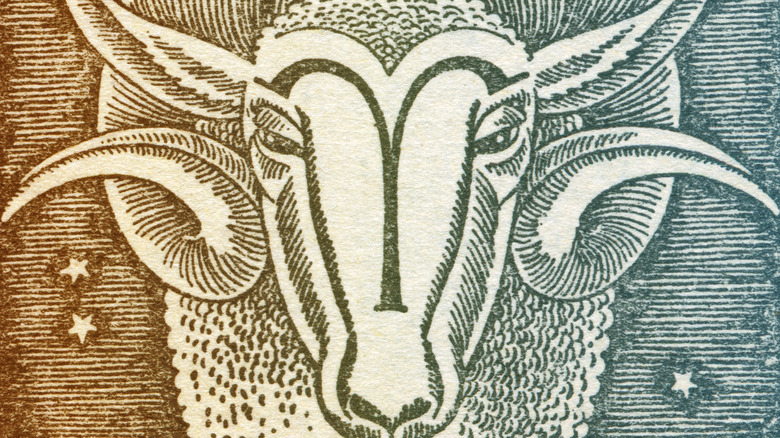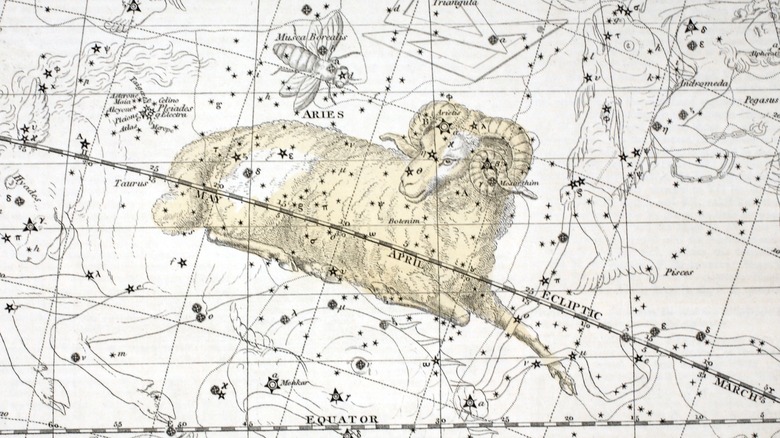The Mythology Behind The Aries Constellation Explained
When it comes to the constellations, the mythology behind them is often the product of one civilization, per In The Sky. When you look to the night skies and see the Perseus constellation, for example, you are seeing the creation of the minds of the ancient Greeks. They came up with the myth of a heroic man who rode a winged horse named Pegasus and slew monsters like Medusa and Cetus. All in a day's work for him. But his story was from the ancient Greeks and only the ancient Greeks. No other civilization co-opted him — the ancient Romans, for example. The Romans did take the Greek gods and change their names — Jupiter for Zeus, Juno for Hera, and so on.
While most of the names of the constellations are derived from Greek mythology, there are some that come from the Romans. The Draco constellation is named after both the Hydra that Hercules fought and a Roman titan, according to Constellation Guide. Lupus the wolf is from Greek mythology and was called Therium, per SeaSky, while the Romans called that same constellation Bestia, which meant "beast."
There are several civilizations that lay claim to the mythology of Aries the Ram, though.
The story of Aries varies
Per CosmoNova, the Aries constellation goes back as far as ancient Babylon. They called it "Chung-ga," which means "Aries" in their language. Other ancient civilizations, including Persians, Egyptians, and Minoans saw the pattern of stars and called it "Aries" in their language. It was the Romans who dubbed it "Aries" for posterity.
The Egyptians saw it as part of the personification of one of their gods, Amon-Ra. He had a ram's head on a human body and was supposed to represent fertility, which meant many people who worked in the fields worshiped him. The Greek version was about a ram who saved a boy named Phrixos from being sacrificed in an evil ruse. The ram took the boy to a safe island, and the ram wished itself to be sacrificed. The ram's reward was to be put into the sky as a constellation.
When it came to the Roman version, the ram saved Bacchus, the god of wine, and his group from being forever lost in the Libyan desert. They were thirsty, and the ram led them to water. Bacchus was so grateful, he sent the ram up to the night sky as a constellation.
So, if you live in the Northern Hemisphere, and it is either late winter or early spring, you can spot the Aries constellation in the night sky. It's up to you to decide whichever version of the myth that you choose to associate it with.

